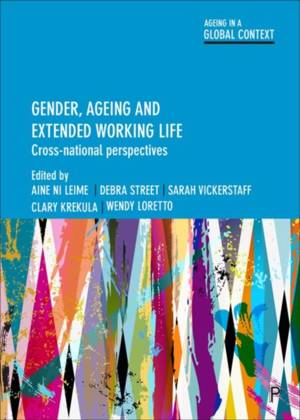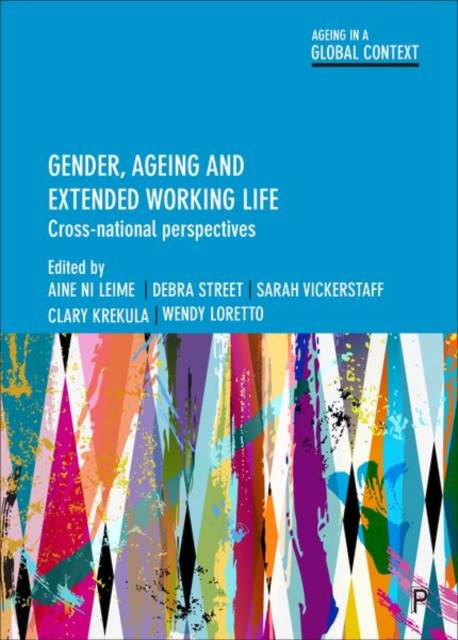
- Retrait gratuit dans votre magasin Club
- 7.000.000 titres dans notre catalogue
- Payer en toute sécurité
- Toujours un magasin près de chez vous
- Retrait gratuit dans votre magasin Club
- 7.000.0000 titres dans notre catalogue
- Payer en toute sécurité
- Toujours un magasin près de chez vous
Gender, Ageing and Extended Working Life
Cross-National Perspectives
Description
Nations that are raising retirement ages appear to work on the assumption that there is appropriate employment available for people who are expected to retire later. 'Gender, ageing and extended working life' challenges both this narrative, and the gender-neutral way the expectation for extending working lives is presented in most policy-making circles.
The international contributors to this book - part of the Ageing in a Global Context series - apply life-course approaches to understanding evolving definitions of work and retirement. They consider the range of transitions from paid work to retirement that are potentially different for women and men in different family circumstances and occupational locations, and offer solutions governments should consider to enable them to evaluate existing policies.
Based on evidence from Australia, Germany, Ireland, Portugal, Sweden, the United Kingdom and the United States, this is essential reading for researchers and students, and for policymakers who formulate and implement employment and pensions policy at national and international levels.
Spécifications
Parties prenantes
- Editeur:
Contenu
- Nombre de pages :
- 256
- Langue:
- Anglais
- Collection :
Caractéristiques
- EAN:
- 9781447325116
- Date de parution :
- 01-08-17
- Format:
- Livre relié
- Format numérique:
- Ongenaaid / garenloos gebonden
- Dimensions :
- 160 mm x 236 mm
- Poids :
- 539 g

Les avis
Nous publions uniquement les avis qui respectent les conditions requises. Consultez nos conditions pour les avis.





